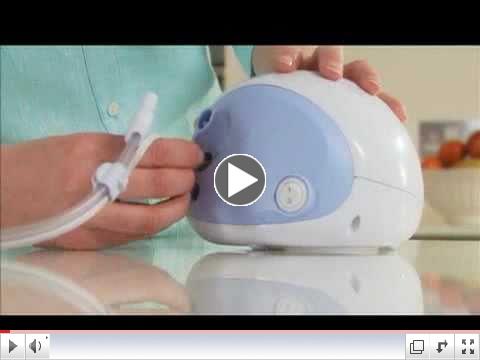|
Underwriter
| |
Dollars & Sense
by Jason Biro
Today's tip:
If your cash flow is tight, analyze your debt.
Dr. Leonard had built a successful practice over the past 11 years, but was losing sleep at night because his cash flow was tight-and he was burdened by debt. After a simple debt analysis, he consolidated his practice debt and several high-payment loans into a single loan-creating a cash reserve of $46,705 by year's end.

|
|
Early probiotic administration & the risk of atopy & asthma/wheeze
| |
The use of prenatal and/or early-life probiotics may reduce the risk of atopy and asthma in children, however debate continues as to their efficacy. A meta-analysis of randomized placebo-controlled trials was utilized to assess the potential benefits of probiotic supplementation on atopic sensitization and asthma/wheeze prevention in children.
Probiotics appear to reduce total immunoglobulin E (IgE) levels, and the risk of atopic sensitization (measured by skin prick test or Specific Ig levels to common allergens), when given prenatally to mothers and postnatally to babies. They do not appear to have any beneficial effect on the risk of asthma/wheeze. Pediatrics |
Maternal asthma during pregnancy-outcomes in the offspring
| |
A study of 4,145 mother-child pairs whose mother had suffered from asthma during pregnancy indicates that their children (followed for mean 6.2 years) have an increased risk of infection, parasitic diseases, and diseases of the nervous, ear, respiratory and skin systems. Asthma during pregnancy may be a risk factor for a variety of offspring diseases.
Pediatrics
|
|
Updates in Pediatrics is brought to you by:
| |
|
Underwriting Opportunities
|
With a circulation of over 4,900, Updates in Pediatrics offers an excellent opportunity to promote your brand at affordable rates.
|
|
|
Comparison of 2 electric breast pumps
Mothers are encouraged to breast feed exclusively for at least the first 6 months of their babies lives and breast milk (with additional foods) appears beneficial if given up to 1 year of age. Effectiveness of pumps utilized may be of paramount importance in promoting this.
171 mothers with preterm infants < 34 weeks were utilized to compare 2 electric pumps: A Medela Symphony (pump S) and a Phillips AVENT Twin Electronic pump (pump A). Primary outcomes were weight of milk expressed over a 10 day period, or during a 15 minute test.
Both pumps S and A are equally effective in terms of milk expression and mother's opinions. Mothers using pump A appear to more appreciate some characteristics of the pump (ease of use/location of control), and are more likely to be directly breastfeeding at discharge.
Journal of Human Lactation
|
Video Feature
 | | Twin electronic breast pump by Philips AVENT |
via YouTube
|
Outcomes of children with severe Bronchopulmonary Dysplasia (BPD) who were positive-pressure ventilator (PPV) dependent at home
A retrospective analysis of 102 patients with severe BPD who were PPV dependent at home (without other comorbidities) reveals:
- 81.4% are alive at 19 years of age.
- 67.6% are weaned off PPV, most before their 5th birthday (median 24 months).
- 58.8% are decanulated, 96.7% before their 6th birthday (median 37.5 months).
Though severe BPD in extremely low birth weight babies is associated with high morbidity and mortality rates, successful decanulation and fairly early weaning from PPV undertaken at home is likely.
Pediatrics
|
|
The value of blood cultures in the evaluation of uncomplicated skin & soft tissue infections
Skin and soft tissue infections (SSTI's) may be divided into those that are "complicated" (surgical or traumatic wound infections, need for surgical intervention, or infected ulcers or burns,) and "uncomplicated" (cellulitis or abscess without features of the "complicated" group).
It appears that immunocompetent children presenting with a SSTI (without complications), do not have positive blood cultures. (12.5% of blood cultures in patients with "complicated" SSTI's are positive). Blood cultures for uncomplicated skin and soft tissue infections appear unnecessary. Pediatrics |
|
Functional abdominal pain (FAP) in childhood & long-term anxiety/ depression
332 pediatric patients with FAP (and 147 control subjects) were tracked prospectively for psychiatric illness and functional gastrointestinal disorder (FGID's) to a mean age of 20 years.
Children with FAP have 40-51% lifetime risk (even with controlling for gender and age) of suffering from anxiety and depression.
Pediatrics
|
|
|